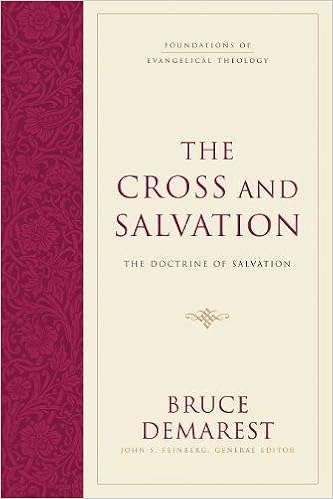Professors at Southeastern Seminary are always reading new books. Center for Faith and Culture Director Ken Keathley is no different — and we want to give you a peek into what’s on his reading list in the new monthly series, “What I’m Reading.”
By Ken Keathley

In my opinion, The Cross and Salvation: The Doctrine of Salvation by Bruce Demarest (Crossway, 2006) is the best one-stop shop available in print today on soteriology (i.e., the doctrine of salvation). For many years Demarest has served as senior professor of Christian theology and spiritual formation systematic theology at Denver Seminary. The book covers all the major topics related to salvation—election, the Atonement, justification, sanctification and so on. For each topic he surveys the positions of the significant theological perspectives—Reformed, Lutheran, Arminian, and Roman Catholic. Demarest describes himself as “moderately Reformed,” but he presents all of the various views with charity and respect. He writes with clarity so that the work is accessible to non-academics.

An excellent little book on the pastoral implications of the Atonement is Thomas McCall’s Forsaken: The Trinity and the Cross, and Why It Matters (IVP, 2012). McCall serves as assistant professor of biblical and systematic theology at Trinity Evangelical Divinity School in Deerfield, Illinois, where he also directs the Henry F. H. Center for Theological Understanding. He argues, quite persuasively in my opinion, against the notion that the Trinity suffered some type of rupture as Jesus died upon the cross. In addition, McCall demonstrates that God gave his Son to die for us, not in order that he might love us, but because he already loved us. Forsaken provides a helpful corrective from some of the more extreme interpretations of Jesus’ cry, “My God, my God, why have you forsaken me?” Like Demarest’s book, students and laypersons can read this work with profit.

For those who want to dive into deeper waters, Michael Horton has written a two-volume work simply entitled Justification (Zondervan, 2018). Horton serves as professor of theology and apologetics at Westminster Seminary California. Against the advocates of the New Perspective on Paul (who see justification primarily as an argument for allowing Gentiles into the church) or proponents of Radical Orthodoxy (who argue that the Roman Catholic Church is right in view justification as the process of making a person righteous) Horton defends the traditional Protestant/Reformed understanding of justification as God’s declaration of acquittal. He argues (again, correctly in my opinion) that justification should be understood under the umbrella concept of union with Christ. Justification is thorough and polemical. If you want to know the current state of the debate about justification, this is your book. I recommend that you read Demarest’s work first!





No comments have been added.